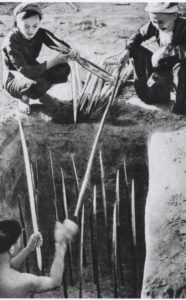Note to the first edition
This book was written in two weeks. In beginning the work I refused absolutely the assistance of my usual instruments of research (books, reviews, notes). Everything contained in this book can be considered as something similar to a discussion between friends, without any doctrinal or scientific employment. The rare citations are quite ‘off the cuff’ and have been left as they are as they were written the first time. The reader is heartily asked to bear this warning in mind.
Introduction to 1989
Like all men of my generation, at least those decided to undertake the not easy road of serious study, I was fascinated by Crocian historicism. For anyone who did not have any immediate and urgent intention towards philosophy in its technical significance, historicism ended up winning over actualism or, at least, idealism in the Crocian guise prevailed over that in the guise of Gentile.
That the construction of the latter idealism was far more coherent and in certain aspects also tremendously coherent, compared to the constructive superficialityof the preceding ‘absolute’ historicism, now it is clear to me, but it was not so when to the hostile and contorted gentilian arguments I preferred the wide narrative discourse of Croce. I am not sure what effect a more organized reading of actualism would have had, but I know for certain that Crocian historicism pushed me to study history and that great historical divide that was the Renaissance with my continual turning to the works of Machiavelli.
Culture, and therefore also the study of history, because it is this that I intend to talk about, is fundamental for man to build a heritage concerning the eternal problems of life, justice, freedom, equality, coherence. All moral problems, not abstractions or pleasantness to ostentate to inspire respect or cause fear. Science is certainly also culture, but it must not be too specialistic, otherwise it would oblige its students to dedicate too much to one sector then talk endless rubbish concerning the fundamental problems of man.
From these statements one could draw two conclusions, one correct the other mistaken. The first would be that history does not enclose itself in the work of the historians, something that is so obvious that it is not even worth discussing, other than to place it in a relational perspective where even history undergoes a different interpretation. The second correct conclusion would be far more dangerous and therefore therefore we would come to historicism more than effectively corresponds to my intentions and concerns the contemporaenity of the event considered historical or, at least, inserted within a historical process, and this deserves considerable going into. And, finally the mistaken conclusion, that of a possible use of history with the aims of action, at least a direct and immediate use this also an element that would take us back into the arms of historicism.
That the work of historians, like all work, is conditioned by various elements of the accumulative mechanism, is obvious. Among these elements, in the first place I would put the immediate conscience of the researcher, that is, his will to give to the material traced and discussed as personal an stamp as possible, not for the pleasure of doing something original and rare, as because the very disgust of the chronist incoherence pushes him to reflection and reasoning. Now, this condition can itself be an accumulative element, that is it can be directly supplied from the material of the sense thatis accumulating, therefore we could say almost discovered by the historian along with his other documentary knick knacks, or on the contrary it can be a fruit of his inquietitude, caused precisely by the work carried out within the accumulative mechanism itself. (incomplete..)
